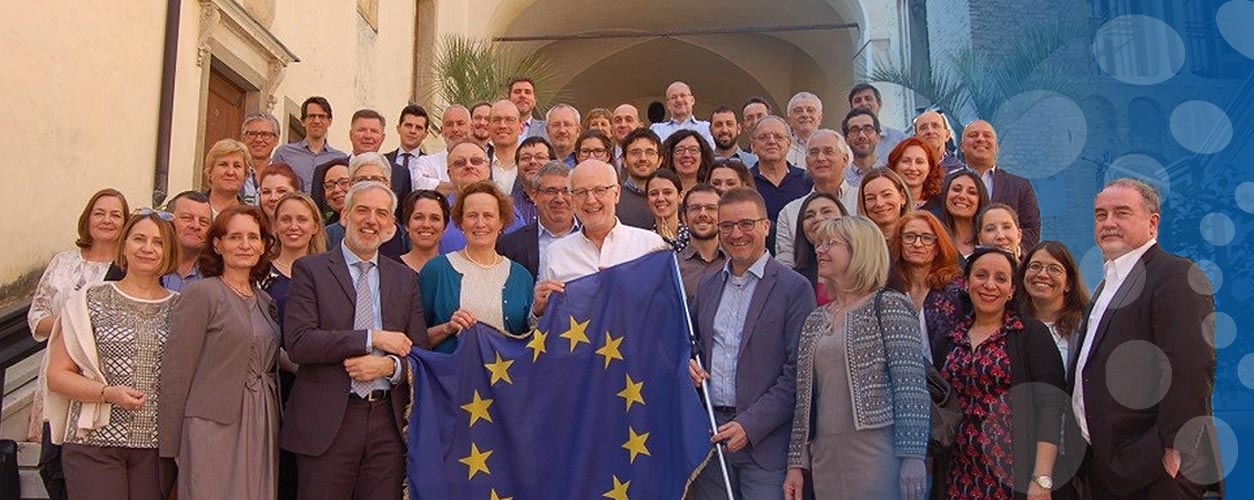Who we are
European Reference Network on Paediatric Cancer (ERN PaedCan)
Bringing Expertise Together to Save Lives
The European Reference Networks (ERNs) are an EU initiative designed to foster collaboration among national health systems, ensuring that patients receive the best possible care, no matter where they live.
The European Reference Network on Paediatric Cancer (ERN PaedCan) was officially approved by the Board of EU Member States in December 2016 and started its activities in March 2017.
ERN PaedCan is dedicated to reducing inequalities in childhood cancer survival by providing high-quality, accessible, and cost-effective cross-border healthcare for children and adolescents with cancerwith cancer regardless where they live.
Full members:
79 Hospitals
(from 21 countries)

Affiliated members:
11 Hospitals
(from 7 countries)
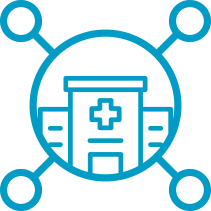
Coverage:
27 Member states
+ Norway (full EU coverage)

Our Vision and Mission
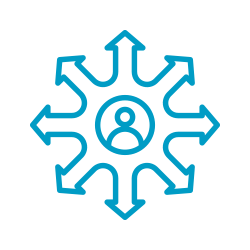
Expanding Access to Life-Saving Paediatric Oncology Treatments
- Reduce inequalities across Member States through sharing of expertise and knowledge by providing Guidelines and Education and in particular by enabling access to up-to-date diagnostics and treatments.
- Unite the best specialists across Europe through cross-border healthcare to tackle complex or rare cancer conditions that require highly specialized interventions and a concentration of knowledge and resources.
- Ensure that information travels rather than the patient through implementation of national and international Virtual Expert Tumour Boards, where advise is given on all steps at diagnosis and throughout treatments and where informed decisions may be taken between Heath Care Providers to trigger cross border referral when indicated.
Learn more about ERN PaedCan Tumor Board HERE
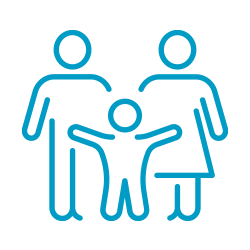
Empowering Families with Information
We support young patients and their families by providing clear, reliable information on:
- Treatment options across Europe
- Quality and safety standards
- Reimbursement and cross-border healthcare access
By reducing bureaucracy and expanding treatment possibilities, ERN PaedCan ensures that no child is left without the care they need.
Network Structure and Governance
The main governing body of ERN PaedCan is the Oversight Committee (OC), which provides effective and transparent governance for all activities undertaken within the network.
The Oversight Committee
- Oversees the implementation of ERN PaedCan’s activities;
- Ensures alignment with the strategic plan of SIOP Europe;
- Integrates the perspectives of parents and survivors into network initiatives;
- Supports the strategic management and achievement of ERN PaedCan’s objectives
The Oversight Committee is composed of
- Members of the SIOPE Steering Committee,
- Chairs of Childhood Cancer International – Europe (CCI Europe),
- Main representatives from the Clinical Research Council.
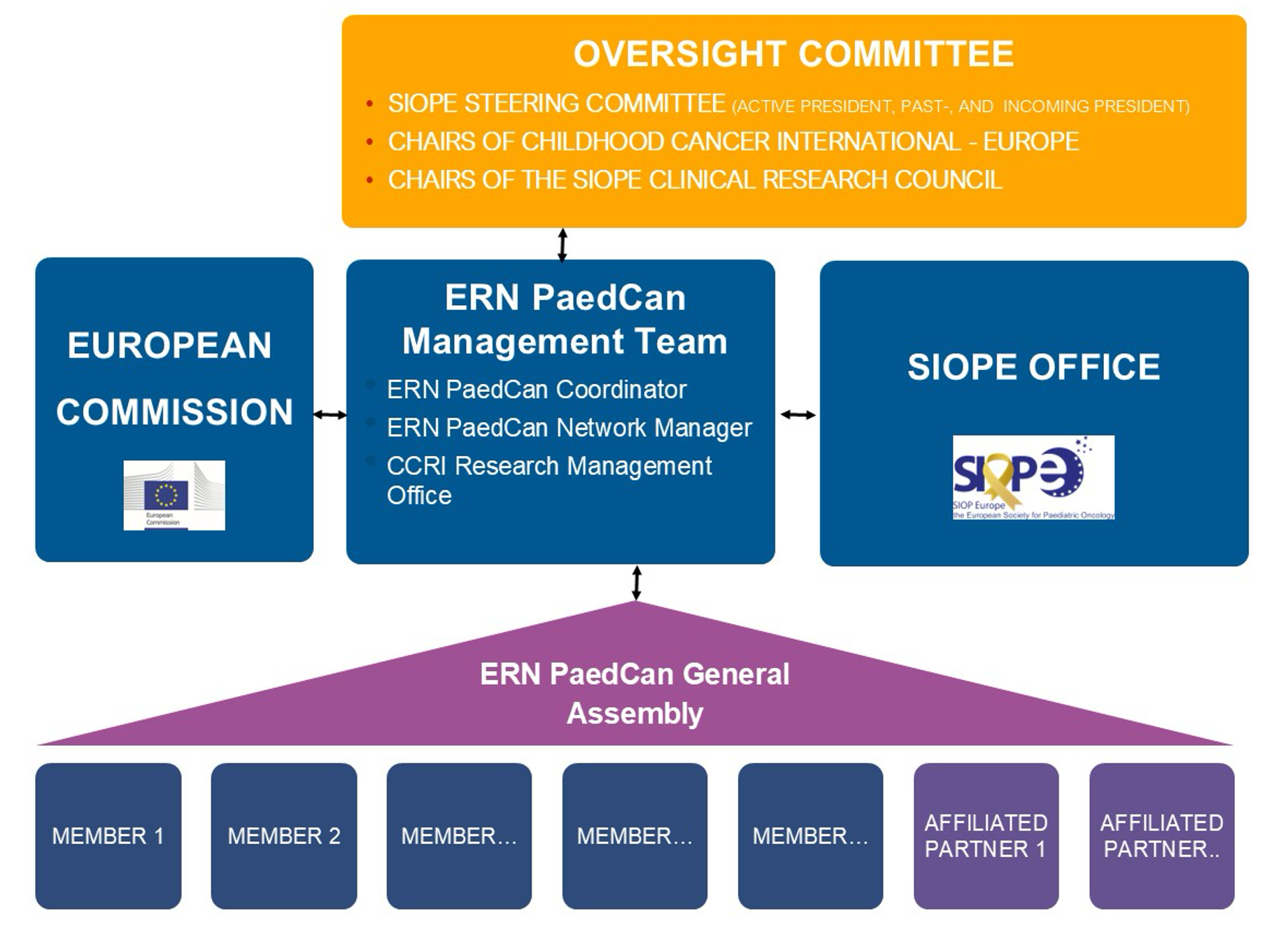
Current Members
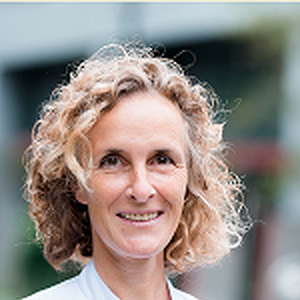
Uta Dirksen, SIOPE president
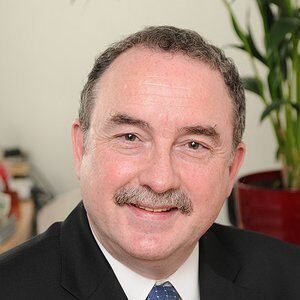
Gilles Vassal, SIOPE Board Member in charge of Oncopolicy
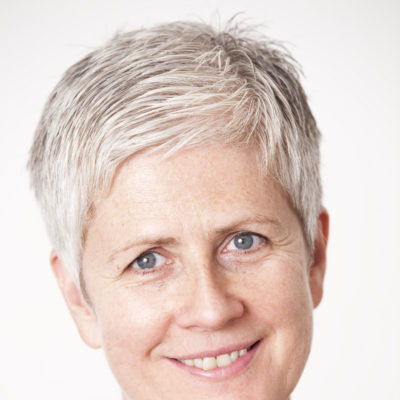
Anita Kienesberger, CCI Europe Chair
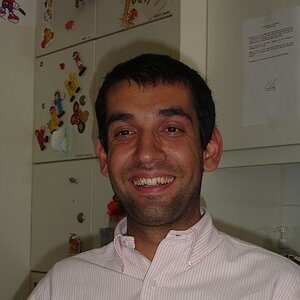
Andishe Attarbaschi, CRC Chair of NaPHOs
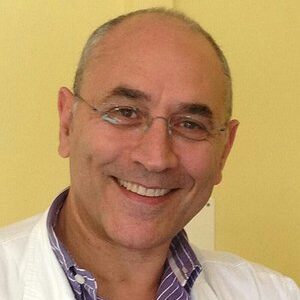
Carmelo Rizzari, SIOPE past president
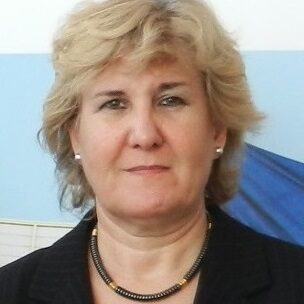
Luisa Basset, CCI Europe Chair
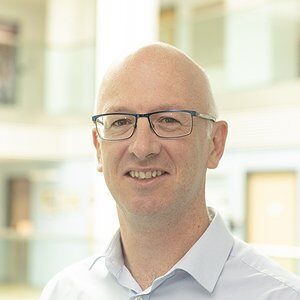
Cormac Owens, CRC Main Representative of ECTGs
ERN PaedCan General Assembly
The General Assembly is composed of the representatives of all Full Members and Affiliated Partners of the network. The assembly meets every year at the SIOPE Annual Meeting and regularly online.
Community
ERN PaedCan works in close collaboration with The European Society for Paediatric Oncology (SIOP Europe) and Childhood Cancer International Europe
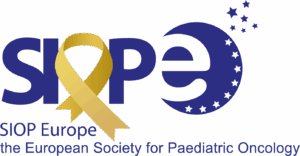
Learn more about SIOP Europe
The European Society for Paediatric Oncology
SIOP Europe is the only pan-European organisation representing all professionals working in the field of childhood cancers. With more than 2,700 members across 36 European countries, SIOPE is leading the way to ensure the best possible care and outcomes for all children and adolescents with cancer in Europe.
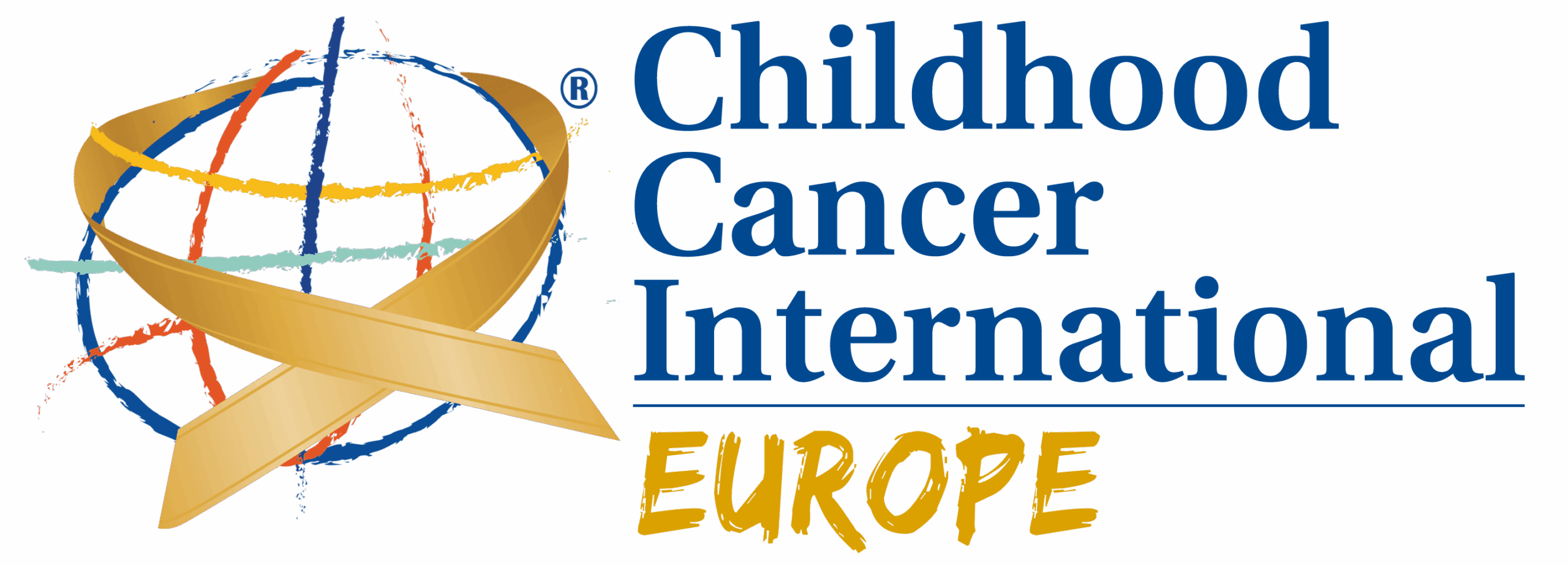
Learn more about CCI-Europe
The Childhood Cancer International
CCI Europe represents Europe in the CCI (Childhood Cancer International) global network of childhood cancer parents‘and survivors‘support groups. CCI Europe works together with the medical and psychosocial professional, academia, researchers, scientists, civil society, private organizations and industry for the same aim, to help children and adolescents with cancer to be cured, with no – or as few as possible – long term health problems / late effects.
members of the network
Full Members of ERN PaedCan
| Healthcare Provider | State | Contact(s) |
|---|---|---|
| St. Anna Children´s Hospital & Children´s Cancer Research Institute | Austria | ERN-Coordinator |
| Ghent University Hospital (Pediatric Hematology-Oncology & Stem Cell Transplantation, Universitair Ziekenhuis) | Belgium | Genevieve Laureay, Melissa Bol |
| Hôpital Universiataire des Enfants Reine Fabiola | Belgium | Alina Ferster (Alice) |
| UZ Leuven | Belgium | Anne Uyttebroeck |
| Cliniques universitaires Saint-Luc | Belgium | Bénédicte Brichard |
| University Hospital Brno | Czech Republic | Jaroslav Sterba |
| University Hospital Motol, Prague | Czech Republic | Jan Stary |
| Copenhagen University Hospital, Rigshospitalet | Denmark | Karsten Nysom, Schmiegelow |
| Aarhus Universitets Hospital | Denmark | Henrik Hasle |
| Kuopio University Hospital | Finland | Kaisa Vepsalainen, Pekka Riikonen |
| Tampere University Hospital | Finland | Olli Lohi, Mikko Arola |
| Turku University Hospital, The Hospital District of Southwest Finland | Finland | Päivi Maria Lätheenmaki |
| ERN PaedCanHUSOY (HUS Helsinki University Hospital + Oulu University Hospital (OYS)) | Finland | Jukka Kanerva |
| Hôpital Bicetre | France | Branchereau Sophie, Isabelle Fernandez |
| Hôpital Trousseau | France | Guy Leverger, Sabine Irtan, |
| Hôpital Universitaire Necker- Enfants malades | France | Christophe Chardot, Sabine Sarnacki |
| Institut Curie | France | Francois Doz |
| Institut d´hematologie et d´oncologie pédiatrique (IHOPE) | France | Christoph Bergeron, Jean Yves Blay |
| Institut Gustave Roussy | France | Dominique Valteau-Couanet, Gilles Vassal, Valerie Marechal |
| Fondation Ophtalmologique Adolphe de Rothschild | France | Gillaume le Henanff, Julien Gottsmann |
| Hannover Medical School | Germany | Brigitte Schlegelberger |
| Dr von Hauner Children´s Hospital, University Hospital Munich | Germany | Jochen Hubertus |
| Charité Universitätsmedizin Berlin | Germany | Angelika Eggert |
| Christian-Albrechts-Universität zu Kiel (CAU) | Germany | Martin Schrappe |
| Klinikum Dortmund GmbH | Germany | Schneider Dominik |
| Klinikum Stuttgart-Olgahospital | Germany | Stefan Bielack |
| University Children´s Hospital Tübingen | Germany | Ines Brecht |
| University Medical Center Freiburg | Germany | Silvia Rathmann |
| University Hospital Gießen- Marburg | Germany | Dieter Körholz |
| University Hospital Bonn | Germany | Gabriele Calaminus |
| Universitätsklinikum Erlangen | Germany | Axel Karow |
| Universitätsklinikum Essen | Germany | Uta Dirksen |
| Universitätsklinikum Augsburg | Germany | Michael Frühwald |
| Universitätsklinikum Frankfurt | Germany | Thomas Lehrnbecher |
| Klinkum rechts der Isar der Technischen Universität München und München Klinik Schwabing | Germany | Stefan Burdach |
| European Medical School Oldenburg – Groningen | Germany | Hermann L. Müller |
| Universitätsklinikum Hamburg-Eppendorf | Germany | Stefan Rutkowski |
| Universitätsklinikum Schleswig-Holstein | Germany | Thorsten Langer |
| Universitätsklinikum Aachen | Germany | Udo Kontny |
| Universitätsklinikum Düsseldorf | Germany | Arndt Borkhardt |
| “Aghia Sophia” Children’s Hospital | Greece | Sophia Polychronopoulou |
| Semmelweis University | Hungary | Miklos Garami |
| Cental Hospital of Southern Pest National Institute of Hematology and Infectious Diseases | Hungary | Gergely Kriván |
| Children’s Health Ireland | Ireland | Cormac Owens |
| Department of Pediatrics-University of Milano-Bicocca/Fundation MBBM, at San Gerardo Hospital, Monza | Italy | Andrea Biondi |
| IRCCS Istituto Giannina Gaslini | Italy | Riccardo Haupt |
| Meyer Children´s Hospital Florence | Italy | Claudio Favre, Camilla Rosa |
| Ospedale Pediatrico Bambino Gesú | Italy | Franco Locatelli, Angela Mastronuzzi |
| Policlinico San Matteo, Fondazione IRCCS Pavia | Italy | Marco Zecca |
| Azienda Ospedialiera di Padova (AOP) | Italy | Gianni Bisogno |
| AziendaOspedaliera Universitaria Senese | Italy | Alessandra Renieri |
| Azienda Ospedaliero-Universitaria Città della Salute e della Scienza di Torino- S.C. Oncoematologia Pediatrica e Centro Trapianti, Presidio Ospedale Infantile regina Margherita | Italy | Franca Fagioli |
| Azienda Ospedaliera S. Maria della Misericordia di Perugia | Italy | Christina Mecucci |
| Fondazione IRCCS Istituto Neurologico Carlo Besta di Milano | Italy | Francesco DiMeco |
| Fondazione Policlinico Universitario A. Gemelli IRCCS – Roma | Italy | Antonio Ruggiero |
| Fondazione IRCCS Istituto Nazionale dei Tumori | Italy | Maura Massimino |
| Children´s Clinical University Hospital, Riga | Latvia | Zanna Kovalova |
| Vilnius University Hospital Santariskiu Klinikos | Lithuania | Jelena Rascon |
| Stichting VU-VUmc | Netherlands | Anne Moll |
| EMC (All functions have been taken over by Princess Máxima Centre) | Netherlands | Michel Zwaan |
| Princess Maxima Center | Netherlands | Peter Hoogerbrugge |
| Oslo University Hospital | Norway | Bernward Zeller |
| T. Marciniak Lower Silesian Specialist Hospital- Emergency Hospital (Wroclaw) | Poland | Jan Godzinski |
| University Children Hospital in Lublin (UCHL) | Poland | Jerzy Kowalzcyk |
| University Clinical Center Gdansk | Poland | Stachowics-Stencel, Ewa Bien |
| University Children’s Hospital of Cracow | Poland | Walentyna Balwierz |
| Instytut “Pomnik-Centrum Zdrowia Dziecka” | Poland | Bożenna Dembowska-Bagińska |
| Instytut Matki i Dziecka (Mother and Child Institute) | Poland | Anna Raciborska |
| Centro Hospitalar e Universitario de Coimbra | Portugal | Alice Carvalho |
| Instituto Português de Onclogia de Lisboa Francisco Gentil, EPE | Portugal | Filomena Pereira |
| Instituto Português de Oncologia do Porto Francisco Gentil, EPE (+ Centro Hospitalar Universitário São João) | Portugal | Ana Maia Ferreira |
| National Institute of Children’s Diseases | Slovakia | Alexandra Kolenova |
| University Medical Centre Ljubljana | Slovenia | Janez Jazbek, Marco Kavcic |
| Hospital Sant Joan de Déu, Barcelona | Spain | Ofelia Cruz, Guillermo Chantada |
| Hospital Universitari Vall d´ Hebron | Spain | Soledad Galego, Jose Sanchez de Toledo |
| Hospital Universitario y Politécnico La Fe | Spain | Adela Canete, Antonio Juan Ribelles |
| Complejo Hospitalario regional Virgen Del Rocio (Sevilla) | Spain | Moniteau Sophie, Ana Fernandez-Tejeiro Alvarez |
| Hospital Universitario La Paz | Spain | Antonio Pérez Martínez |
| Hospital Universitario Virgen Macarena | Spain | Ana Fernandez-Teijeiro |
| Karolinska University Hospital | Sweden | Cecilia Petersen, Niklas Pal |
| Skâne University Hospital | Sweden | Lars Hjorth, Helena Linge |
| Sahlgrenska University Hospital | Sweden | Gustaf Österlundh |
Affiliated members
| Healthcare Provider | State | Contact(s) |
|---|---|---|
| Pediatric Oncohematology Department, University Hospital “Tsaritsa Johanna-ISUL” | Bulgaria | Boiko Korukov (CEO of the HCP) |
| Division of Pediatric Hematology and Oncology, Centre of Reference for Pediatric Hematology and Oncology Ministry of Health Republic of Croatia, Department of Pediatrics, University Hospital Center Zagreb, University of Zagreb, School of Medicine | Croatia | Ante Ćorušić (CEO of the HCP) |
| Children’s University Hospital Zagreb, Division of Paediatrics Oncology and Haematology | Croatia | Goran Roić (CEO of the HCP) |
| Division for Pediatric Haematology and Oncology, University Department of Pediatrics, University Hospital Centre Rijeka, Croatia | Croatia | Davor Štimac |
| Pediatric Oncology/Hematology Clinic Archbishop Makarios III Hospital | Cyprus | Kyriakos Georgiou (CEO of the HCP) |
| Tallin Children’s Hospital | Estonia | Katrin Luts (CEO of HCP) |
| Tartu University Hospital | Estonia | Priit Eelmäe (CEO of the HCP) |
| Centre Hospitalier du Luxembourg | Luxembourg | Romani Nati (CEO of the HCP) |
| Mater Dei Hospital | Malta | Ivan Falzon (CEO of the HCP) |
| Institutul Oncologic “Prof. Dr. Alexandru Trestioreanu” Bucuresti | Romania | Lidia Anca Kajanto (CEO of the HCP) |
| Institutul Clinic Fundeni Bucuresti | Romania | Carmen Orban |
CCI-Europe National Contact Points
| Healthcare Provider / Organisation | State | Contact(s) | |
|---|---|---|---|
| CCI-Europe | Austria | Anita Kienesberger | a.kienesberger@ccieurope.eu |
| KickCancer | Belgium | Delphine Heenen | info@kickcancer.org |
| Association “Heart for kids with cancer” (Udruženje “Srce za djecu koja boluju od raka”) | Bosnia & Herzegovina | Lejla Kamerić | l.kameric@ccieurope.eu |
| Association Children with Oncohematologic Diseases | Bulgaria | Theodora Armenkova | armenkova@gmail.com |
| Firefly – Association for helping children and families facing malignant diseases (Krijesnica – Udruga za pomoć djeci i obiteljima suočenim s malignim bolestima) | Croatia | Mihael Severinac | mihael@krijesnica.hr |
| Familier med kræftramte børn (FMKB) | Denmark | Tommy Brøgger | info@fmkb.dk |
| Estonian Association of Parents of Children with Cancer | Estonia | Kaili Lellep | info@vahilapsed.ee |
| SYLVA | Finland | Antti Karjalainen (Research) | sylva@sylva.fi Antti.Karjalainen@sylva.fi |
| UNAPECLE | France | Frédéric Arnold | contact@unapecle.net |
| Monk Andrew’s Charity Foundation | Georgia | Miledi (Tinatin) Chkhvimiani | monkandrew.fund@gmail.com |
| Deutsche Kinderkrebsstiftung | Germany | Ria Kortum | r.kortum@kinderkrebsstiftung.de |
| Floga – Parents association of Children with Cancer | Greece | Georgia Kokkinou | floga@floga.org.gr |
| Childhood Cancer Foundation (CCF (Light it up Gold)) | Ireland | Mary Claire Rennick | info@childhoodcancer.ie |
| Federazione Italiana associazioni Genitori Oncoematologia | Italy | Angelo Ricci | presidente@fiagop.it |
| Pediatrica (FIAGOP) | Italy | info@fiagop.it | |
| Fondatioun Kriioncobskrank Kanner | Luxembourg | Anne Goeres | contact@fondatioun.lu |
| FENIX MONTENEGRO’ NGO’ association of parents of children with child’s cancer | Montenegro | Dijana Stojanović | fenix.crnagora@gmail.com |
| Vereniging Kinder Kanker Nederland | Netherlands | Jaap den Hartogh | info@kinderkankernederland.nl |
| ISKIERKA Foundation | Poland | Magda Stajno | m.stajno@fundacjaiskierka.pl |
| Acreditar – Association of Parents and Friends of Children with Cancer | Portugal | Telma Sousa | ts@acreditar.pt |
| Daruieste Aripi Association (Give Wings Association) | Romania | Alina Pătrăhău | alina@daruiestearipi.ro |
| Children and parents against cancer (CAPAC) | Russia | Ekaterina Kiseleva | katerinakiss@mail.ru |
| “ZVONČICA” Childhood Cancer Parent Organization | Serbia | Irina Ban | udruzenjezvoncica@gmail.com |
| SMILE, n.o., POMÁHAME S ÚSMEVOM | Slovakia | Ludmila Hurajova | hurajova@lifesupport.sk |
| JONATAN PRIJATELJ, Društvo staršev otrok z rakom | Slovenia | Tatjana Kruder | tatjana.kruder@siol.net |
| Federación Española de Padres del Niños con Cáncer | Spain | Luisa Basset | LBASSET@mes.upv.es |
| Barncancerfonden | Sweden | Holly Wattwil | holly.wattwil@gmail.com |
| Zoé4life | Switzerland | Nicole Scobie | nicole@zoe4life.org |
| Tabletochki Charity Foundation | Ukraine | Yuliya Nogovitsyna | info@tabletochki.org |
The European Reference Networks
European Reference Networks (ERNs) are virtual networks involving healthcare providers across Europe. They aim to tackle complex or rare diseases and conditions that require highly specialised treatment and concentrated knowledge and resources.
Health systems in the European Union aim to provide high-quality, cost-effective care. This is particularly difficult with rare or low-prevalence complex diseases or conditions. Between 5,000 and 8,000 rare diseases affect the daily lives of around 30 million people in the EU.
HOW DO ERNs WORK?
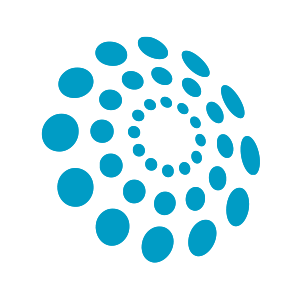
To review a patient’s diagnosis and treatment, ERN coordinators convene ‘virtual’ advisory boards of medical specialists across different disciplines, using a dedicated IT platform and telemedicine tools. The process and criteria for establishing an ERN and for selecting its members are set in EU legislation.
24 NETWORKS

The first ERNs were launched in March 2017, involving more than 900 highly specialised healthcare units from over 300 hospitals in 26 Member States. 24 ERNs are working on a range of thematic issues, and the one on childhood cancer is the ERN PaedCan.
LEGAL BACKGROUND

- Directive 2011/24/EU on patients’ rights in cross-border healthcare;
- Commission delegated decision listing the criteria and conditions that healthcare providers and the ERNs should fulfil;
- Commission implementing decision containing criteria for establishing and evaluating ERNs, including the exchange and dissemination of information about the ERNs.
The ERN initiative receives support from several EU funding programmes, including the Health Programme, the Connecting Europe Facility and Horizon 2020.
BOARD OF MEMBER STATES

The ERN initiative is mainly driven by the EU Member States. The Board of Member States is the formal body in charge of the approval and termination of networks and memberships as provided in the Commission’s Implementing Decision. The Board is comprised of representatives of the 28 EU Members States and the EEA countries.

